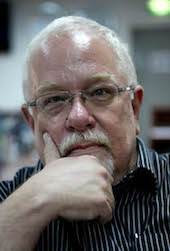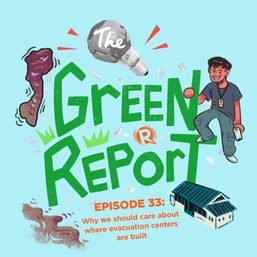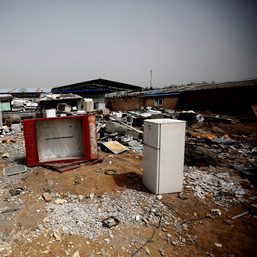SUMMARY
This is AI generated summarization, which may have errors. For context, always refer to the full article.
 It is too early to say if sweeping changes to Indonesian governance will be made under President-elect Joko “Jokowi” Widodo. But one thing seems certain: his people will be watching.
It is too early to say if sweeping changes to Indonesian governance will be made under President-elect Joko “Jokowi” Widodo. But one thing seems certain: his people will be watching.
After rising from small-city mayor to Jakarta governor, Jokowi excited legions of followers who spontaneously formed various groups to back his unlikely bid for the presidency.
Outspent by his well-heeled opponent, ex-General Prabowo Subianto, and only half-heartedly supported even by elements within his own party, the Indonesia Democratic Party of Struggle (PDI-P), the race was headed for a statistical dead heat until momentum from non-party activists carried Jokowi across the finish line.
The Prabowo camp’s relentlessly negative – and false message that Jokowi was half-Chinese, a Christian, incompetent and perhaps even a communist ate away at the governor’s massive early lead in opinion polls. It took the spectacle of a dramatic rock concert in Jakarta where Jokowi appeared before tens of thousands of adoring supporters just days before the July 9 vote to widen the gap and give him a convincing victory.
The margin was wide enough that Prabowo’s subsequent caterwauling challenge to the result in public and in the courts has been greeted with derision. This has bolstered Jokowi’s popularity, making it unlikely that Prabowo and his allies, many of whom are fleeing his now-embarrassing coalition, will form a unified opposition.
But the real forces Jokowi must contend with are his own supporters – inside and outside his political party.
From inside, he is facing enormous pressure from PDI-P stalwarts who see holding the presidency as a chance to get at the spoils they have been denied during 10 years in opposition to outgoing President Susilo Bambang Yudhoyono’s government.
Jokowi’s “transition team,” itself something new for Indonesia, where cabinets are usually formed on the basis of deals made in exchange for political party support, is embarked on a search for a cabinet supposedly made up of professionals. During the campaign, Jokowi repeatedly said he would not trade cabinet seats for political support.
But Jokowi owes his political life to PDI-P Chairwoman Megawati Sukarnoputri. Insiders say that while it may be unclear what Megawati wants out of the Jokowi government, PDI-P party leaders are besieging the transition team, which is headed by a Megawati confidant, looking for positions.
This week, Jokowi repeated his pledge that political parties will not be given cabinet seats. He said he will appoint “professionals” and that party officials will have to relinquish their posts if they are going to be in his government.
He has also taken the extraordinary step – for Indonesia, anyway – of asking the public to suggest names of potential cabinet members in a non-binding online poll, the results of which showed more than 100,000 people bothering to fill out the questionnaire. The leading names – some reasonable, some outlandish – were made public Wednesday, Aug. 13. (READ: Technocrats, politicians top online poll for Jokowi cabinet)
This is all part of the Jokowi approach. He is determined to appear to be listening to the people. It can be a risky strategy, because the non-party activists who backed his campaign are watching the cabinet selection process very carefully.
“We will monitor and support the transition. With regards to the pros and cons, we hope that the cabinet [members] who are elected have no political background,” said Muhammad Yamin, the leader of a non-party group, the Jokowi National Secretariat, according to press accounts.
Human rights groups have already criticized Jokowi for putting retired General AM Hendropriyono on his transition team to advise on security issues. Hendropriyono, a one-time military rival of Prabowo’s, has been accused of numerous abuses from his time in uniform, but he also warned during the race that Prabowo was a “psychopath,” bringing the candidate’s mental fitness for the job into the open for the first time.
There are deeper reasons why it will be difficult for Jokowi to keep political powerbrokers at bay. In the Indonesian legislative system, laws are passed in the House of Representatives by consensus, with recorded votes nearly unheard of. The horse-trading means that the executive branch of government needs a powerful majority – which PDI-P does not have – in order to get its way. Individual lawmakers also can easily stall legislation or insert clauses on behalf of special interests that frequently result in contradictory laws.
If he does not have a strong coalition, Jokowi could find his government hamstrung and ineffective. This means that not just PDI-P but also parties that backed Prabowo, like the powerful Golkar Party, are already sniffing around for access and power. They are certain to demand political favors in exchange for support.
It will be a delicate balancing act for Jokowi to form a genuinely professional cabinet of technocrats and experts – the names should start to be known next month, ahead of the October 20 inauguration – that will still be able to get things done politically.
There are perils on all sides. Outgoing President Yudhoyono formed a so-called unity government in 2009 that was stacked with politicians. Indeed, virtually the only party that was outside the Yudhoyono tent was PDI-P. The cabinet, however, was unwieldy, numerous ministers were laughably incompetent in their respective fields and many posts were used to divert funds to parties through kickbacks.
It was one such scandal, involving a massive sports complex, that so tarnished Yudhoyono’s Democratic Party that it became a non-factor in the 2014 polls as numerous officials, including a cabinet minister, were marched off to prison by the powerful Corruption Eradication Commission (KPK). A number of other current and former cabinet ministers are also likely to face jail time in various scandals currently being investigated by the KPK.
This is what Jokowi has to avoid. Yudhoyono rarely denounced people under him who got caught with their hands in the till, preferring to stand above the fray. Jokowi will have no such luxury.
The eyes of his millions of energized supporters, with their fingers on their Twitter accounts, will hold his government to a higher standard. – Rappler.com
A. Lin Neumann is a consultant and writer based in Jakarta. He was the founding editor of the Jakarta Globe. The article originally appeared in Edge Review, an online regional magazine covering Southeast Asia.
Add a comment
How does this make you feel?
![[OPINION] Fossil fuel debts are illegitimate and must be canceled](https://www.rappler.com/tachyon/2024/04/IMHO-fossil-fuel-debt-cancelled-April-16-2024.jpg?resize=257%2C257&crop_strategy=attention)
![[WATCH] John Kerry: You can’t solve climate crisis without addressing ocean’s challenges](https://www.rappler.com/tachyon/2023/12/cop28-united-states-john-kerry-december-2-2023-reuters-001.jpg?resize=257%2C257&crop_strategy=attention)



There are no comments yet. Add your comment to start the conversation.